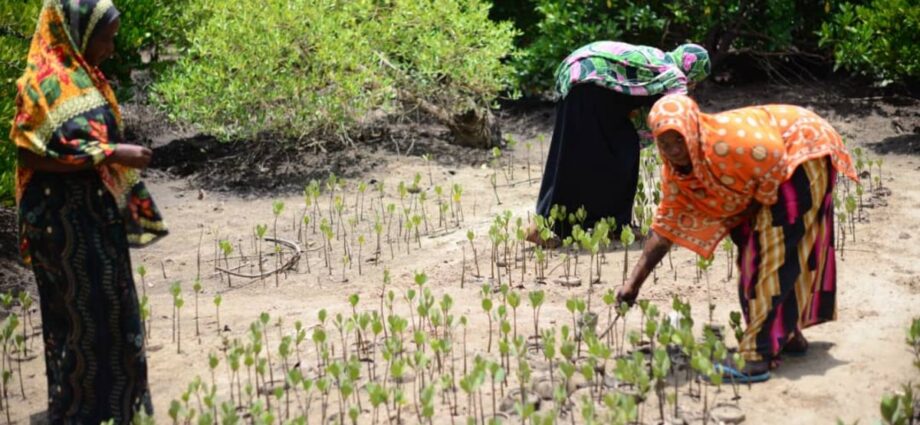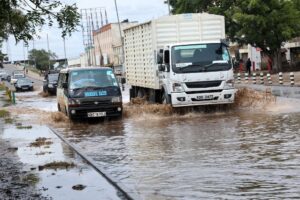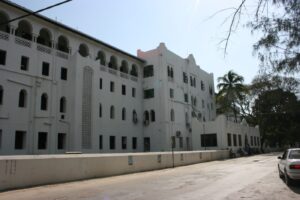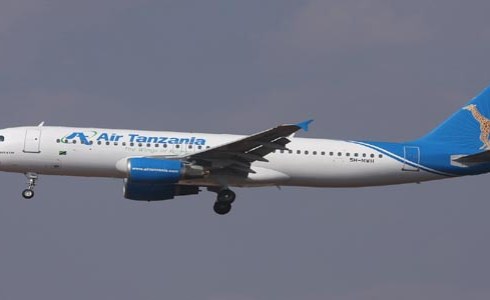
Unguja. A recent forest inventory in Zanzibar reveals the decline in the volume of mangrove forest, dropping from 41 cubic metres to 18.9 cubic metres in Unguja, and from 39.8 to 38.3 cubic metres in Pemba.
The report shows that the country loses 1.2 percent of its forest cover annually, equivalent to 1,277 hectares.
The Minister for Agriculture, Irrigation, Natural Resources and Livestock, Mr Shamata Shaame Khamis, informed the House of Representatives that the decline is largely driven by human activities—including logging for construction and cooking fuel—alongside infrastructure development and climate change.
This is exemplified by the ongoing construction of a two-kilometre road between Unguja Ukuu and Uzi and Ng’ambwa in South Unguja Region, which led to the felling of over 2,000 mangrove trees.
The government, however, has pledged to replant all felled trees in collaboration with local communities—not just in the affected areas, but across the island.
“Between 1997 and 2013, mangrove forests in Unguja declined in volume from 41 cubic metres to 18.9, and in Pemba from 39.8 to 38.3, mainly due to tree-cutting and other human activities,” the report states.
The forest census, conducted in 2013 by the Department of Forestry under the Ministry, showed Zanzibar had 37,801.38 hectares of forest cover—22,137.38 hectares in Unguja and 14,970 hectares in Pemba—including highland and mangrove forests.
Agroforestry areas have also diminished, shrinking by 20,649 hectares in Unguja and 14,338 hectares in Pemba.
Women leading forest restoration
Efforts to restore natural vegetation are gathering pace, with women at the forefront of reforestation initiatives that seek to promote environmental sustainability and improve household incomes.
Speaking to The Citizen, residents of Unguja Ukuu cited the lack of alternative energy sources as a key challenge.
“In remote areas like this, energy access is still a major issue, so many people depend on firewood, which leads to tree-cutting,” said a resident, Ms Asha Abdalla.
The 2021 Zanzibar Environmental Status Report reveals that more than 90 percent of rural households depend on firewood for cooking, greatly contributing to forest degradation.
Another resident, Ms Fatma Said Abdala, said increased environmental education from various stakeholders has helped raise awareness on forest protection, particularly the role of mangrove planting in rehabilitating degraded ecosystems.
“Sometimes, people don’t appreciate the importance of conservation until they are educated. We are now focusing on growing mangrove seedlings and educating others about the value of forest conservation,” she said.
Another woman, Ms Hajra Hassan Haji, noted that although the work is demanding—and occasionally ridiculed—the benefits are long-lasting.
She urged the government to intensify public education and increase seedling distribution to help reverse the impacts of deforestation in Zanzibar.
“There’s still a significant gap in awareness. While some people understand the importance of forest protection, others remain indifferent,” she said.
She emphasised the need for broad-based community involvement in understanding the effects of deforestation, particularly given the dependence of low-income households on natural resources.
Role of environmental organisations
Civil society organisations involved in environmental conservation have been instrumental in climate adaptation efforts in both rural and urban areas.
Their number increased from 25 in 2016 to 60 by 2021 in Unguja and Pemba.
Environmental data show that, between 2016 and 2021, civil society groups planted and maintained an average of 233.5 hectares of mangroves annually across the two islands.
A production technology officer with the Zanzibar Women Leadership in Adaptation (ZanzAdapt) project, Mr Shaaban Peter, said the initiative targets 4,000 farmers—80 percent of them women—who are trained in integrated farming and mangrove cultivation as part of reforestation efforts.
The project is implemented in partnership with the Center for International Forestry Research (CIFOR), Tanzania Media Women’s Association (Tamwa)-Zanzibar, and the Pemba Forest Community Network (CFP), with funding from Global Affairs Canada.
“We focus on women because they are often the most affected by climate change. But when empowered, they become agents of change—not just by planting trees, but by improving their livelihoods,” Mr Peter said.
A farmer from Bungi village, Ms Sabrina Haji, said she formed a group to grow fruit trees and mangroves for both replanting and sale as part of her contribution to environmental conservation.
Tamwa-Zanzibar Executive Director, Dr Mzuri Issa, said women now have equal opportunities to contribute to national development, challenging the long-held perception limited to household responsibilities.
She called on women to take full advantage of such opportunities—not only to support national efforts, but also to uplift their economic status.
The Sheha of Unguja Ukuu, Mr Ali Hamadi Ali, appealed to relevant institutions to cooperate, provide tools, and safety training to curb mangrove logging, which he said undermines national and community interests.
“We need to shift people away from mangrove-cutting as a source of income, as it releases harmful gases into the atmosphere and accelerates temperature rises,” he said.














